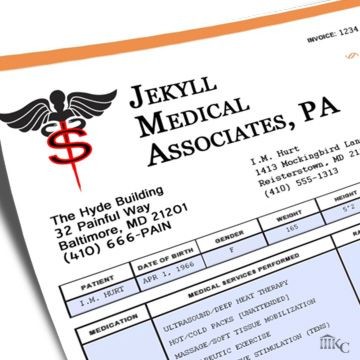The Lawyer's Lawyer
The Ills of Medical Bills
Q. Wishing to handle it herself, my client has asked me not to pay one of her doctors from the proceeds of her settlement. I never signed anything to guarantee such payment, but I'm afraid that the doctor will claim a lien on the proceeds and come after me. What should I do?
A. Sometimes, the future is easy to predict.
Despite her assurances to the contrary, your client won't pay this doctor from the proceeds of her settlement. Whether or not the doctor has a valid lien against her recovery, the doctor will claim one, accuse you of failing to protect it, and hold you personally responsible for payment. At the very least, you'll find yourself in the middle of a dispute between your client and her doctor and, in the end, neither side will be all that pleased with you.
Although you would be legally obliged to protect a valid medical lien, you are likewise required to follow the instructions of your client. But, with or without a lien, paying your client proceeds which someone else may claim is a risky proposition.
To be safe, you should safeguard these funds until these competing claims are sorted out. When you get funds in which two or more persons claim an interest, you must hold the money in trust until the dispute is resolved.
So, if your client would receive a net recovery of $5,000 without taking this $1,000 bill into account, you should promptly disburse $4,000 to your client, but keep $1,000 in trust.
If doctor and patient cannot reach an agreement, or are unwilling to select a neutral arbiter, you may ultimately have to deposit these funds with the court, interplead both parties, and let them litigate the dispute. As they face the prospect of spending more money litigating than the size of the bill itself, this may motivate them to resolve their differences and move on.
While you should encourage your client to reach an agreement to pay her doctor, and may help to facilitate an amicable resolution, you should never dive into the conflict to act as an arbiter of the dispute. If you pay the doctor over the objections of your client, your client will accuse you of failing to abide by her instructions. Conversely, if you follow your client's instructions and pay the disputed proceeds to her, the doctor will accuse you of failing to safeguard funds. Ironically, even if you pay the doctor's bill from your own funds, you may unwittingly engage in a conflict of interest in states that prohibit an attorney from paying a client's medical bills.
As an attorney, you must follow the instructions of your client, except when to do so would violate ethical restrictions or improperly infringe upon the legal rights of others. Blindly following your client's orders will not immunize you from either charge.
